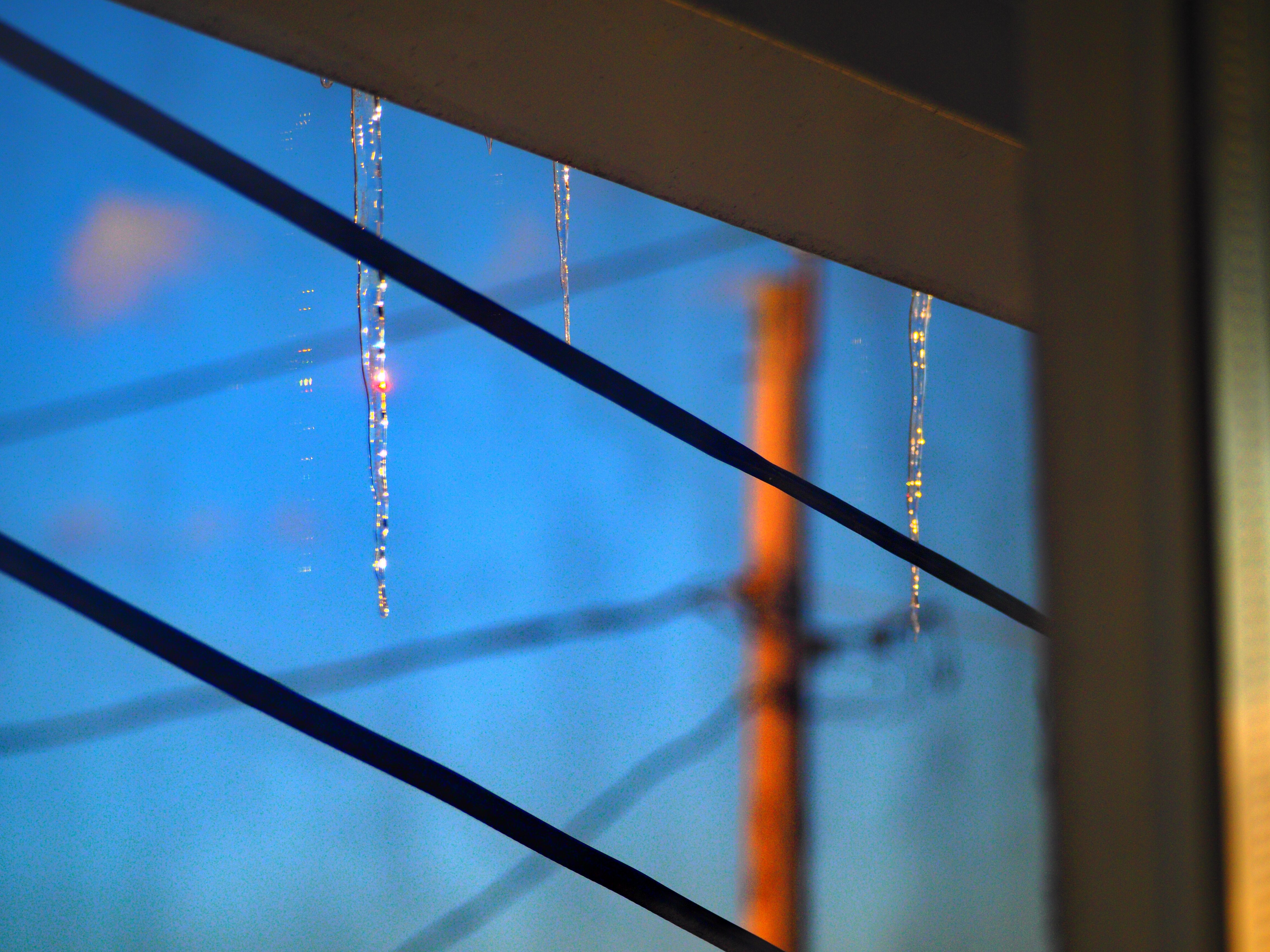-
Posts
44,789 -
Joined
Content Type
Profiles
Blogs
Forums
American Weather
Media Demo
Store
Gallery
Everything posted by LibertyBell
-
without humidity it's pretty good. 100 degrees and low humidity is great weather to run in even here. Once it gets above 110 I dont like it so much.
-
and we must remember this 11 year hot cycle covered the entire continent, so the drought and heat in the west and even the midwest could be the start of a coast to coast megaheatwave.
-
I thought 2010 was pretty amazing for JFK, because it's the only one that had 30+ 90 degree days there (31) and they also had 10+ 95+ degree days (11)! Three days out of four around July 4th weekend were above 100 there! I wonder if that'll ever happen again? It almost seems like the 1995-96 of summers. 1993 had that torrid heatwave after July 4th weekend, I don't know why it seems so much worse than 2010 just for that particular heat wave. Maybe because that was the last summer I went without AC? Do you remember it- even JFK had two days above 100 degrees in a row, while NYC had three, and EWR had an astounding 5 (including two in that stretch that reached 105!) I think EWR finished with an amazing 9 100+ degree days! Do you think they could ever get 10 of those days? Going back to 1980, I remember that was the first heatwave that I analyzed. We had an 80 degree average for 2 months- July and August! That was pretty amazing. I remember reading that hundreds of people died in St Louis- not so amazing. But the heatwave covered the country from the third week of June through the third week of September, so pretty much the entire summer. 1983 had one of the hottest three month averages I'd seen, and with the record rainfall, it also had one of the most humid summers we've ever had. On top of that temps were still hitting 99 in September and still in the mid 90s as late as the equinox and a few days after!
-
Right, also a quicker storm than what 1888 was. We had a foot of snow after an inch of rain which was the first time thats happened. March 1888 was also rain at the start but the storm lasted so long that over 2 feet of snow fell on the backend. Imagine that- over 2 feet of backside snow!
-
The thing I find odd is that so few of the high 90 degree summers are on this list. Just off the top of my head I would've thought 1966, 1980, 1983, 1991, and 1993 should be near the top.
-
Yep, the differences are stark. Manhattan actually has trees and I think the buildings being close together provide some shade. The temps really ramp up as soon as I get into Queens but they start falling fairly rapidly again past that park with the lake in it that's near the GCP.
-
I just find it really hard to believe that 2020 was anywhere near as hot as 2010 was, you can see that with how few its 90 degree highs are compared to 2010. The other thing is I always notice a significant bump up in temps after I leave Manhattan and drive into Queens through the Midtown tunnel. The temps in that area are higher than they are in any other part of the city. From about the part of Queens right outside the Midtown tunnel through about the Grand Central Parkway. There's some park with a lake in it just off the GCP and after that point, the temps start dropping again.
-
wasnt snowicane Feb 2010 a repeat of the 1888 blizzard? Amounts were very similar too.
-
I just didn't find 2020 to be all that impressive as far as summer heat goes, certainly nothing compared to 2010 especially in terms of 90 and 100 degree heat! How could July 2020 even compare to July 2010 which was much hotter? I discount LGA temp records, that area is like an oven, any temp numbers coming out of there should be taken with an extreme grain of salt. And NYC is now overfoliated. We should use JFK temp records because it doesn't suffer from urban heat island as much as the others and it's a nice happy medium between NYC and LGA. Or even better use an average of JFK and EWR and you get the full spectrum of temps and both of those are much less tainted with urban heat island than the rest.
-
Wow, looks like that highest summer average temp from 1966 is still holding? I thought 2010 would've beaten that since that summer holds all the other records lol. Do you have a specific set of those records for JFK, Don? Including number of 90 and 100 degree days? Thanks! I wonder what was happening in 1908 with all those 80 degree lows lol. We didn't even have an urban heat island back then. Are you sure about those records from last summer (2020), Don? I dont remember that summer as being particularly hot, certainly nothing like 2010 was? July 2020 certainly cant hold a candle to July 2010 our hottest month of all time! I discount LGA temp records, that area is like an oven, any temp numbers coming out of there should be taken with an extreme grain of salt. And NYC is now overfoliated. We should use JFK temp records because it doesn't suffer from urban heat island as much as the others and it's a nice happy medium between NYC and LGA. Or even better use an average of JFK and EWR and you get the full spectrum of temps and both of those are much less tainted with urban heat island than the rest. Highest average minimum temperature: 72.1°, 2020 (LGA) Highest average mean temperature: 79.5°, 2020 (LGA) Monthly: Average monthly maximum temperature: 90.6°, July 2020 (LGA) Average monthly minimum temperature: 75.2°, July 2020 (LGA) Average monthly mean temperature: 82.9°, July 2020 (LGA)
-
Hopefully not a microburst there. I had some tree damage from one of those a couple of summers ago.
-
How was it north of you around Albrightsville? It looks like they got about an inch of rain from these storms?
-
Finally JFK got to 90+ again! Hit 92 here, so we were 90+ three out of the five days in SW Nassau. Why were PHL and ACY under 90- too much rain? I guess ISP doesn't do well on westerly winds?
-
Got to 92 here today. We reached 90+ on three out of five of these days, 90, 93 over the weekend and 92 today.
-
I wonder whats the quickest the south shore of LI has gotten to 70 SST? Does any site keep track of that? What about a year like 2002 when we had a mild winter and then a hot spring with a heat wave in April 2002 and a hot and dry summer after that? Or maybe 1983 which was both extremely hot and extremely humid throughout? Or 2010 which was hot and dry from start to finish? Another possibility is 1993 which was one of our hottest summers and also very humid.
-
Looks like an 80% eclipse for us https://www.timeanddate.com/eclipse/in/usa/new-york My best eclipse I've seen so far was a 90% eclipse seen in July of 1991
-
Oh no, so it's more like a 90% eclipse for us? I guess for those of us who are corona lovers, we wouldn't get to see it either way. By the way, the word "corona" has been ruined for me forever. I was talking about being a corona lover earlier and it was taken in a completely wrong way lol.
-
I hope you have an elevated viewing location (like a rooftop or something) because the sun will be really close to the horizon, maximum eclipse is 10 min after sunrise. Make sure you have eclipse glasses since it's an annular eclipse.
-
I was going to say this reminds me of Florida- lots of 90 degree days and very high humidity but doesn't get much higher than 95-96.
-
Once the ocean warms up dont the storms make it all the way across?
-
Ocean lagging behind despite how warm the spring has been. I'd expect the ocean to be closer to 70 right now but it's stuck in the low 60s brrrr.
-
thats why we need a westerly wind to hit 100 degrees.
-
and it's still only June and early June at that
-
Got to 68 this morning and I actually turned off my a/c and fan
-
that plus that sensor is right near the water lol south shore of nassau a couple of miles away from the ocean was warmer (like me)



